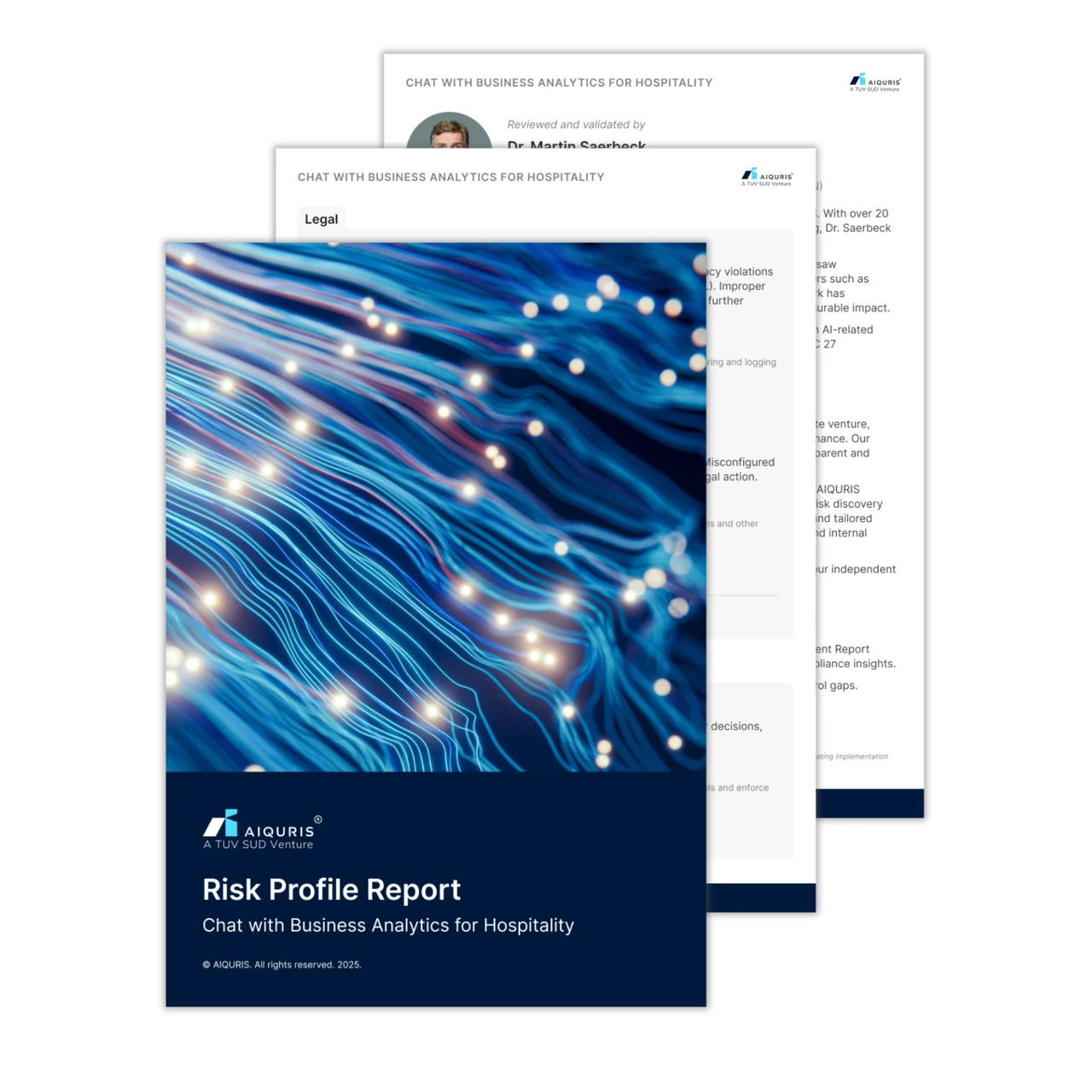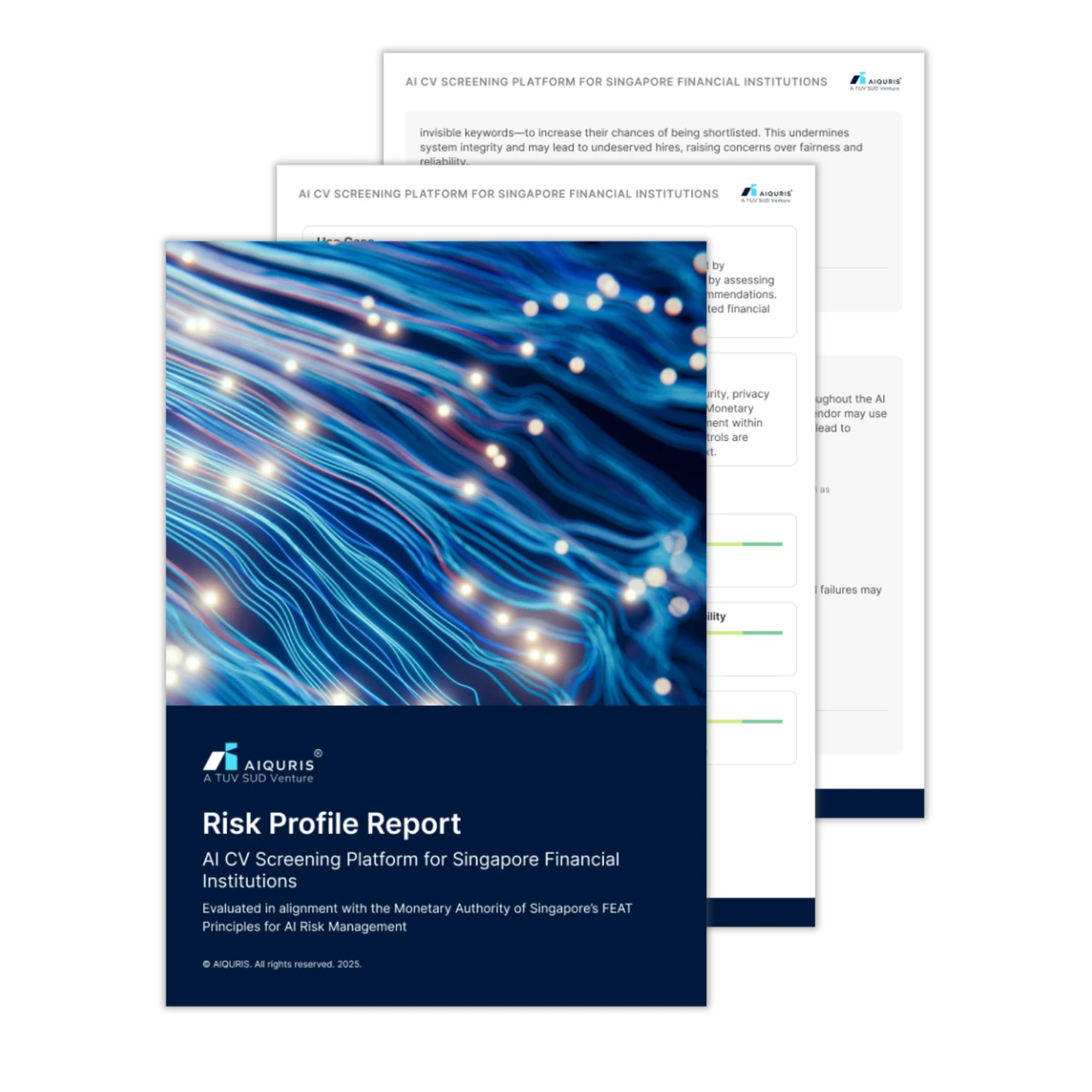Agentic AI: A New Era of Intelligent Decision-Making
Agentic AI is redefining enterprise operations, moving beyond generative AI by making decisions, executing plans, and adapting autonomously. Unlike traditional AI, which generates content or predicts outcomes, agentic AI enables systems to reason, plan, and take actions without direct human input.
“With LLMs enabling autonomous decision-making, AI agents are set to disrupt industries globally, with projections ranging from $180 million to over $2 trillion.” - Shivang Gupta, founder of The Generative Beings said in his keynote speech at an Agentic AI discussion on Agentic AI Meets Corporate Strategy. Watch the event video here.
As businesses integrate this technology, they must balance automation with human oversight to ensure responsible implementation. This blog explores the key insights from a panel discussion on the opportunities, risks, and governance of agentic AI. Watch the entire video of the panel discussion here.
April Chin, CEO (Singapore) Resaro, shared a thought-provoking insight on what Agentic AI is meant to do. "If AI is making predictions and generative AI is producing content, then agentic AI is meant to make decisions."
The Role of Agentic AI in Corporate Strategy
Agentic AI is already reshaping business strategies by automating complex workflows, improving decision-making, and enhancing customer engagement.
Key Applications:
- Automating Repetitive Tasks: AI agents streamline back-office operations, reducing human workload.
- Enhancing Customer Experience: Personalised AI assistants adapt in real time to customer needs.
- Optimising Business Operations: From financial reporting to compliance checks, agentic AI can autonomously manage tasks that require high precision and consistency.
Example: In Southeast Asia, startups like Addly and Mavic are deploying agentic AI to revolutionise industries like sales and marketing. In fact, across the globe AI-powered sales teams leveraging agents have reported revenue growth1. Agents now handle customer inquiries, negotiate pricing, and finalise contracts without human intervention, reducing sales cycle times significantly.
AIQURIS and AI Governance
For businesses adopting agentic AI, compliance and governance are crucial. AIQURIS offers AI governance maturity assessments, compliance automation, and risk profiling, ensuring structured and responsible AI scaling. Additionally, AIQURIS tracks governance readiness and provides structured improvement plans, enabling businesses to enhance their AI compliance frameworks over time.
Managing Risks: Oversight and Ethical Considerations
Despite its advantages, agentic AI carries significant risks that businesses must actively manage.
Key Risks:
- Lack of Explainability: AI decisions are often difficult to interpret, leading to accountability concerns.
- Autonomous Errors: Mistakes in AI-driven decision-making can have significant financial or reputational consequences.
- Ethical & Privacy Concerns: AI systems must be designed to prevent bias, discrimination, or data misuse.
As stated by Deep Thomas, Nomura’s Chief Data Officer, “If you're a financially regulated firm, it comes with the expectation that whatever you do is done trustworthy, ethically and responsibly. But to drive a corporate strategy, you've got to understand what outcomes you're driving. In a very simple sense, the outcome should enable superior business performance while institutionalising stronger risk and control.”
Without clear risk controls, autonomous AI decisions could lead to compliance violations, financial losses, or reputational damage.
Solutions:
- Human-in-the-Loop Systems: Ensuring human intervention in high-stakes decisions.
- Robust AI Governance: Establishing clear accountability frameworks for AI-generated outcomes.
- AI Testing & Validation: Regular performance assessments to detect and correct AI misalignment.
AIQURIS' risk profiling is based on six key pillars—Safety, Security, Legal, Ethics, Performance, and Sustainability—benchmarked against enterprise IT risk frameworks like NIST, ISO 27001.
Governance and Regulation: A Balanced Approach
Regulatory bodies and corporations are shifting toward risk-based governance strategies that prioritise accountability and transparency without stifling innovation. Rather than imposing overly restrictive laws, regulators are focusing on adaptable frameworks that balance technological progress with ethical responsibility.
Key Regulatory Approaches:
- Outcome-Based Regulation: Governments are focusing on the results AI systems generate, rather than dictating specific processes.
- Leveraging Existing Laws: Privacy and anti-discrimination frameworks, such as GDPR and the EU AI Act, are being adapted to govern AI-driven systems.
- Industry Collaboration: Businesses, policymakers, and researchers are working together to create ethical AI deployment guidelines.
One of the key concerns in AI governance is the application of general-purpose models in traditionally unregulated sectors. The potential risks highlight the need for balanced oversight.
As said by Shameek Kundu, Executive Director of the AI Verify Foundation, “Something that makes me nervous is the use of general-purpose models in areas that have not been traditionally regulated. And social media is one. Even advertising to some extent, marketing, et cetera. Now you might say that normally those are not regulated, but at some point, they might do damage if they're completely uncontrolled.”
How AIQURIS Supports Compliance
AIQURIS dynamically generates AI compliance requirements from regulatory frameworks, industry standards, and risk profiles. The automation of compliance tracking reduces manual efforts while ensuring solutions align with security and procurement policies.
Balancing Innovation and Safety
To ensure safe AI deployment, businesses must implement proactive risk management.
Best Practices for Safe AI Integration:
- Contextual AI Performance – AI should be evaluated in real-world scenarios rather than relying on static benchmarks, which may not account for evolving business needs or unexpected challenges. This approach ensures AI systems adapt effectively to dynamic environments.
- Encouraging Open-Source Models – Promoting open-source AI frameworks allows for greater transparency, collaboration, and peer review, helping to identify biases and vulnerabilities early while maintaining necessary regulatory safeguards.
- Rigorous Testing & Monitoring – AI solutions must undergo extensive testing in sandbox environments, ensuring they function correctly before full-scale deployment. Continuous monitoring post-launch is essential to detect and mitigate risks in real time.
"If we regulate AI too tightly, we risk stifling innovation and limiting the capabilities of the tools. But if we don’t regulate at all, we open ourselves to significant risks." – Martin Saerbeck, Chief Technology Officer, AIQURIS. Watch more details on this topic here.
AIQURIS’s Role in AI Safety
AIQURIS enables businesses to integrate explainability, fairness assessments, and security checks into their AI strategies, ensuring compliance with industry standards.
The Future of Agentic AI in Corporate Strategy
Our panel discussion revealed many insightful predictions for the future of Agentic AI.
- 2025 will mark a turning point for mainstream adoption of agentic AI.
- Decentralised AI models will gain traction, reducing dependence on single providers.
- More businesses will integrate AI-driven decision-making into their core strategies.
You can watch the entire video here.
"I see it more as a kind of decentralised AI, where I think the opportunity for us is for building AI ventures right now. There's no point in starting out and building our own foundation model. We're even trying to build a foundation model specialised towards a particular sector. What's far more valuable for us to do is to focus on solving a vertical issue." – Michael Cutler, Fractional CTO, SC Ventures by Standard Chartered.
How AIQURIS Supports the Future of AI
As companies embrace decentralised AI governance, AIQURIS provides structured frameworks to assess risk, ensure regulatory compliance, and optimise AI performance at scale.
Conclusion
Agentic AI is transforming corporate strategy, offering organisations the ability to automate workflows, optimise operations, and drive innovation. However, its successful deployment requires a balanced approach—strong governance, ethical safeguards, and proactive risk management.
Discover how AIQURIS can future-proof your AI strategy. Talk to an expert today.






